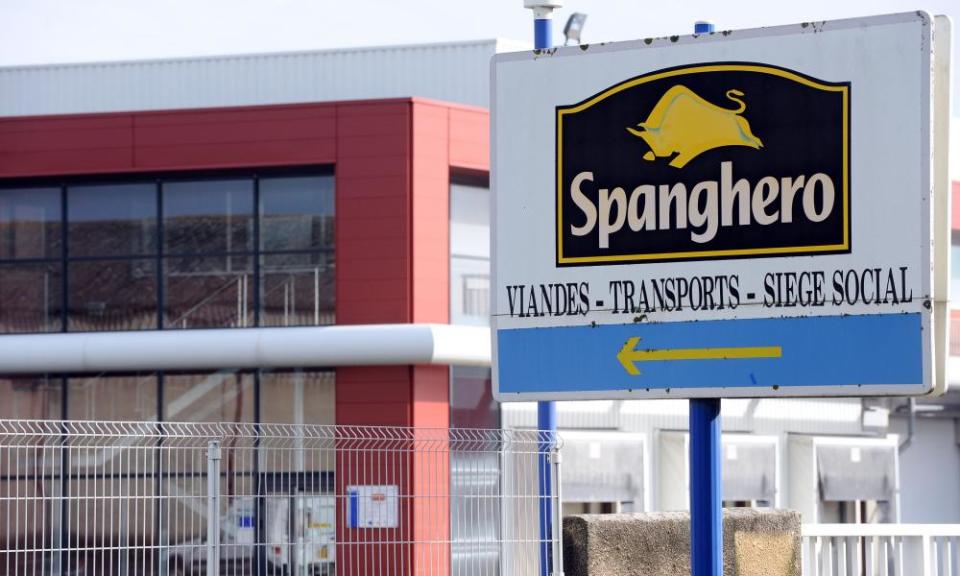Horsemeat scandal: four on trial in Paris accused of fraud

The trial of four people accused of an elaborate fraud that tricked consumers into buying ready-made meals containing horsemeat instead of beef has opened in Paris.
An international scandal erupted in 2013 when the mislabelled food was discovered by the Irish authorities in frozen burgers labelled “pure beef”.
A wider investigation found horsemeat in ready-made meals on sale in several high-street supermarkets in Britain and in pre-prepared dishes across Europe, including those used by hospital caterers and in school lunches.
About 4.5m dishes – including lasagne, moussaka, chilli con carne and beefburgers made with horsemeat passed off as beef – were believed to have been distributed around 13 countries.
After an international investigation the source of the meat was traced back to French suppliers Spanghero and its production centre at Castelnaudary in the Aude. Spanghero had bought it from Romania via two companies based in the Netherlands and Cyprus.
The prosecution alleges Spanghero knew it was buying frozen horsemeat and changed the customs code on the packaging.
The French authorities claimed Spanghero had profited by more than €500,000 (£430,000) over six months by marketing the cheap horsemeat as much more expensive beef.
Among the accused is Dutch trader Jan Fasen, whose Cyprus-based company, Draap Trading Ltd, (Draap is paard – Dutch for horse – backwards) brokered the deal between two Romanian abattoirs and the French company. Fasen was jailed for nine months in 2012 for having sold South American horsemeat as halal beef from Germany or Holland between 2006-09.
Two former Spanghero executives, Jacques Poujol and Patrice Monguillon, are also in the dock on fraud charges linked to the elaborate scheme. They are accused of having sold the meat as “boned beef” that had been cut and prepared in France, while allegedly knowing it was horsemeat that had been treated in Romania, Belgium or Canada.
Spanghero had denied it had ever bought or resold horsemeat. But invoices uncovered in 2013 showed Draap had billed the French firm for 18.5 tonnes of horsemeat. The invoice carried the product code for frozen horsemeat used in international transport. The French firm did not deny the authenticity of the invoice but said it was not aware of the code signifying horsemeat.
Horsemeat, widely eaten in France, poses no health risk but is cheaper than beef.
The scandal raised concerns over a lack of controls on “transformed” meat and the often complex supply chain across the EU, which has since tightened its food regulations.
A lawyer for Poujol told Reuters he did not know he was being sold horsemeat, a claim refuted by one of his co-defendants.
The trial is scheduled to continue for three weeks. If convicted of defrauding the public, the men face up to 10 years in jail and a €1m fine.

 Yahoo News
Yahoo News 